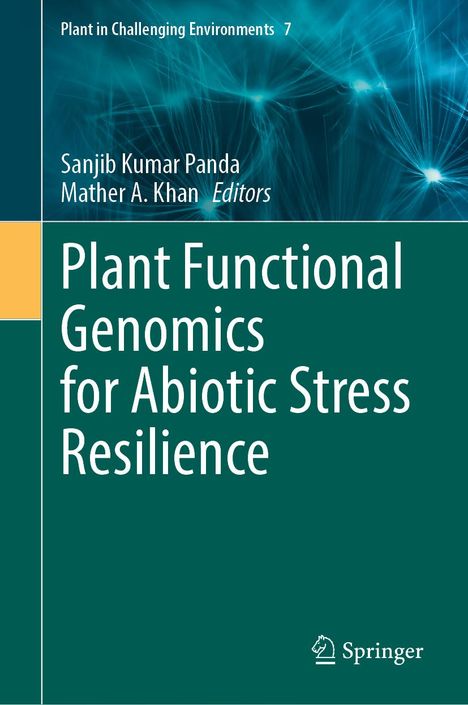Plant Functional Genomics for Abiotic Stress Resilience, Gebunden
Plant Functional Genomics for Abiotic Stress Resilience
(soweit verfügbar beim Lieferanten)
- Herausgeber:
- Sanjib Kumar Panda, Mather A. Khan
- Verlag:
- Springer, 09/2025
- Einband:
- Gebunden
- Sprache:
- Englisch
- ISBN-13:
- 9783032017031
- Artikelnummer:
- 12343435
- Umfang:
- 336 Seiten
- Gewicht:
- 668 g
- Maße:
- 241 x 160 mm
- Stärke:
- 24 mm
- Erscheinungstermin:
- 27.9.2025
- Hinweis
-
Achtung: Artikel ist nicht in deutscher Sprache!
Klappentext
Chapter 1. Unveiling Abiotic Stress Sensing and Regulatory Pathways for Enhanced Crop Resilience.- Chapter 2. Functional Genomics Approaches for Abiotic Stress Tolerance Mechanism in Crop Plants.- Chapter 3. RNA silencing-based tools for abiotic stress tolerance in plants.- Chapter 4. Redox regulation of the response to abiotic stresses at the transcriptional level in plants.- Chapter 5. Genome manipulation and genetic engineering of sugarcane to enhance drought tolerance.- Chapter 6. Crop transcriptome response for abiotic stress tolerance.- Chapter 7. Advancing Crop Resilience: Integrating Multi-Omics Approaches for Abiotic Stress Tolerance.- Chapter 8. Mechanism of Temperature perception, signalling and acclimation in plants.- Chapter 9. Conservation and diversification of the cold stress response in higher plants.- Chapter 10. Applications of Microbial Biotechnology for Improving Toxic Heavy Metal Stress Tolerance and Yield in Crops.

